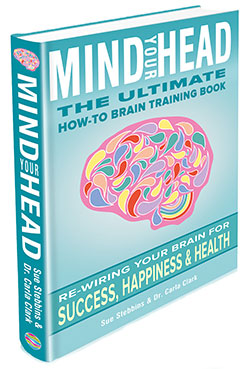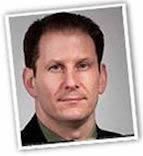A Thomistic Tapestry: Essays in Memory of Eienne Gilson
(PETER A.REDPATH (ED.))
Reviewed by Denis Bradley
Page 2
Source: http://ndpr.nd.edu/review.cfm?id=1336
For Gilson, Malebranche was not just, in some vague sense, a “religious philosopher” but an Augustinian, who, like his thirteenth century predecessors (especially Bonaventure), regarded Aristotle as pagan and Aristotelian scholasticism as an idolatry that concedes far too much ontological density to the creature. Moreover, Gilson maintained that it was the Aristotelian notion of nature as sufficient unto itself that allowed Aquinas to distinguish with unequaled precision “the respective domains of the supernatural and the natural, and of theology and philosophy” (p. 114). Malebranche's occasionalism, with its attendant denial of the reality and efficacy of secondary causes, is the antithesis of St. Thomas's created world which is robustly and intrinsically causal. Malebranche's occasionalism indicates that a philosophy's Christian inspiration is no guarantee of its being a sound philosophy. In Gilson's synthetic view of the history of philosophy, bad ideas, which like all ideas capture intelligible universals, connect in a constellation of essential relations and have their own impersonal consequences that devolve independently of their original context and their author's intentions. In his two doctoral theses, brilliantly defended in 1926 before an admiring audience of eminent academics, Gouhier took account of Gilson's notion of Christian philosophy and the Augustinianism of Malebranche; he located the center of Malebranche's philosophy in our union with a God whose power and glory must be exalted in preference to the putative autonomy of the creature. Yet, Gouhier sustained a phenomenological, rather than a conceptual or systematizing, approach that tries to remain internal to the thought which it describes: accordingly, Malebranche's philosophical vision arises from and articulates a world of Christian experience to be lived and understood only from within itself. Thus Gouhier's historical method permits the historian, who would remain really in contact with Malebranche's own world, no access to an external reference point from which to criticize it. Evidently, this is not how Gilson practiced “the” historical method. Forty years later, in a letter to Gouhier (9 June 1966), Gilson refers disapprovingly to Gouhier's “radical historical contingentism”, which ignores the metaphysical necessities inherent in philosophical thinking. History, as narrative, does bear on the individual and the contingent particular but philosophy, as science, bears on the universal and the essential. The philosophical historian can link the thoughts of philosophers, if they derive from a common principle, and thereby reveal the inevitability of those conceptual chains. With remarkable éclat, Gilson himself did just that in The Unity of Philosophical Experience.
As one might expect from disciples moving still in the ambit of their master, almost every article in this book rehearses rather than criticizes or deconstructs Gilson's historical and philosophical views. It is not surprising, then, that (Dennehy excepted) Maritain remains for most of them, as he was for Gilson, the great alternative Thomist. So, Richard Geraghty does again what he did in his published doctoral thesis; he takes issue with Maritain's notion of moral philosophy (influenced by John of St. Thomas) as “a speculatively practical science” needing to be supplemented by a “practically practical science” (p. 15). Geraghty convincingly argues that Aquinas's distinction of the speculative and practical sciences is disjunctive; it eliminates the middle ground on which Maritain seeks to position ethics. The goal of ethics as a practical science is determining, choosing, and effecting the right deed to be done. Aristotelian ethics in making that practical determination draws on but does not get bogged down in metaphysics; rather, it takes as its own proper starting point (NE, I, 4, 1095b16-22) “the well-habituated person as the highest standard of his culture” (p. 16). Such a man will already know that honor is better than pleasure, and virtue better than honor. He needs only to be instructed through the theoretical demonstrations of the moral philosopher that the intellectual virtue of contemplation is the highest component of happiness. More controversial and less convincing are Geraghty's brief remarks (pp. 26-27) on how Aquinas the “moral theologian” differs from Aquinas the “moral philosopher”—which can only mean Aquinas the commentator on Aristotle's ethics. In that capacity, Aquinas quietly attempts to shore up Aristotle's well-habituated man by insinuating into his exegesis some hint of the medieval Christian doctrine of synderesis, the innate knowledge of universal principles of practical reason that license quasi-immediate inferences to the inviolable moral precepts of the Decalogue. [Cf.III Sent., d. 33, q. 2,a. 4, sol. 4 (Moos, 3: 1066, n. 242); SLE, II, 4, 1105b5, 101-6; V, 12, 1134b19, 49-57; VI, 11, 1144b1, 30-33.] Since Aquinas grounds these self-evident “natural law” principles “onto-theologically” (in the human mind they participate the divine law in God's mind), it is highly doubtful that Aquinas held that “two irreducible ways exist to consider human actions”—”from the viewpoint of faith in the word of God and the viewpoint of the reason of the good and experienced person” (p. 26; italics my emphasis).
As one might also suspect, there are several potent doses of anti-modernismeadministered in this inaugural volume. James Schall warns that neither theology nor philosophy can declare “its own absolute autonomy” (p. 178). The warning is hitched to current events: “Current worldwide political turmoil” (p. 179), especially as it arises from conflicts between secular and Islamic cultures, exposes (Leo Strauss notwithstanding) the impossibility of “two [unrelated] truths,” that is, it exposes the need to harmonize without eliminating either reason or revelation. Gilson sought to harmonize them using the reasoning of Aquinas. Aquinas showed that philosophy cannot be identified even with “The Philosopher,” Aristotle, and that faith is not contrary to sound philosophy, thereby freeing reason and protecting revelation: in other words, Aquinas showed that Aristotle's arguments leading to conclusions contra articulos fidei are non-demonstrative and that there are cogent rational proofs for the praembula fidei. Thus reason, without negating itself, leaves an opening wherein one—moved by divine grace—may rationally accept transcendent or super-rational revealed truths. In no way, then, does Gilson propose, contrary to what Murphy erroneously states, that we can only begin with “the act of blind faith in the invisible God” (p. 103). It is the modern rejection of Aristotle, which was undertaken as the necessary propaedeutic for modern science, that has led to a philosophical reason severely diminished by “relativism and skepticism” (p. 180) and a correlative religious fideism. For his part, Gilson attempted to reinvigorate modern philosophical reason “by restoring revelation to its proper content and role” (p. 182). The restorative revelation in question is—and Schall unhesitatingly affirms that it can only be—Christian: for Schall, the West's struggle with an ideological Islam appealing to the arbitrary (that is, non-rational) will of Allah, is, first of all, a struggle within Islam about whether its own economic and political marginalization must be attributed to untrue religious beliefs and faulty intellectual foundations.
The editor of this volume, Peter Redpath, is convinced, and doubtless not he alone among its authors, that Gilson cleared the historical and doctrinal path, by exposing modern philosophy as an epistemological detour leading to an idealist cul-de-sac, back to the enduring truths of Thomistic “realism.” Redpath celebrates the significance of Maurer's essay, “The Unity of a Science: St. Thomas and the Nominalists,” which was written for the septicentennial celebration of St. Thomas's death. In this essay, Maurer traces Descartes's dream of a systematic science of clear and distinct ideas (so important for modern conceptions of science) to its historical antecedents in the late medieval nominalists, notably William of Ockham, who rejected Aquinas's doctrine that a science is unified in reference to its abstracted formal object. Similarly, Joseph Califano singles out for praise Maurer's lucid English translation and helpful annotation of Aquinas's Commentary on the de Trinitate of Boethius: the fifth and sixth question of this commentary explicitly treat the division of the three theoretical sciences (physics, mathematics, and metaphysics) by detailing the three kinds of abstraction from matter that the intellect can effect. The nominalists, after eliminating universal intelligible natures (and thus abstracted formal objects), had to find a new ground for the unity of a science. Leibniz, commenting on the seventeenth century nominalist, the philosopher Mario Nizolius, praises the medieval nominalists as “most in harmony with the spirit of modern philosophy” (quoted Redpath, p. 31). For this very reason, however, Redpath would be forced to brand, eagerly it seems, modern philosophy as well as its late medieval antecedent “a sophistry” (p. 34).
We Make it Easy to Succeed
Successwaves, Intl.
Brain Based Accelerated Success Audios
 |






